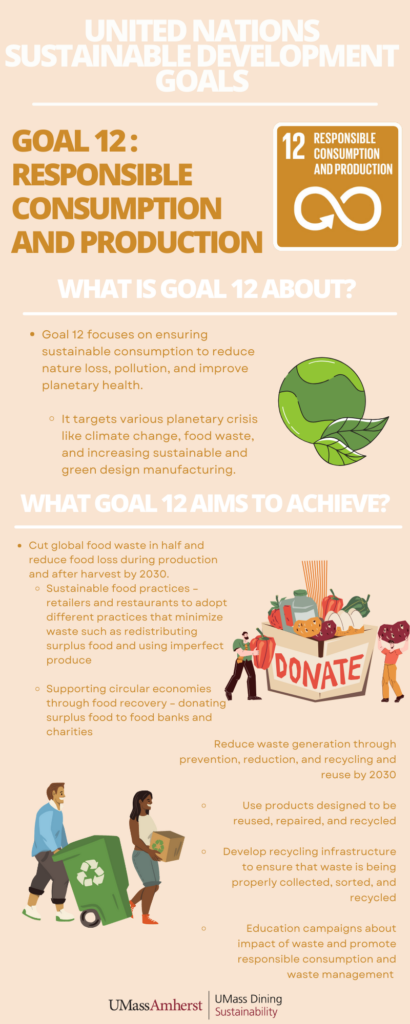Reducing food waste and loss is essential to achieving a sustainable future aligning directly with UN Sustainable Development Goal (SDG) 12: Responsible Consumption and Production. This goal emphasizes the need to halve global food waste per capita at the retail and consumer levels and to reduce food losses along production and supply chains by 2030. These efforts are crucial for improving food security, reducing environmental impact, and addressing the broader climate crisis.
Sustainable Food Practices: Reducing Waste at Retail and Restaurant Levels
One of the primary ways to address food waste is by encouraging retailers and restaurants to adopt sustainable practices. Using imperfect produce helps prevent unnecessary waste. More retailers and consumers are beginning to embrace this ensuring that perfectly edible food is not thrown away, but rather repurposed into making new food for human consumption. By promoting these practices, the food industry contributes to sustainable consumption patterns which SDG 12 highlights as critical for both people and the planet.
Supporting Circular Economies Through Food Recovery
Supporting circular economies through food recovery is another key component of SDG 12. Instead of letting surplus food end up in landfills, businesses should aim to donate excess food to organizations that address hunger and food insecurity. Circular economies focus on reusing resources and minimizing waste. Food recovery initiatives embody this principle by redistributing excess food to those in need ensuring more equitable access to food.
Reducing Waste Generation by 2030
Beyond food waste, SDG 12 calls for a reduction in overall waste generation by 2030 through prevention, reduction, recycling, and reuse. One approach to this is transitioning from disposable to reusable or repairable items helps limit waste generation aligning with the sustainable consumption patterns central to SDG 12. Educational campaigns for promoting responsible consumption and waste management are critical to achieve this goal. By raising awareness about the environmental impacts of waste and providing guidance on sustainable behaviors empower individuals and communities to make more sustainable choices.
Achieving SDG 12 is a shared responsibility that calls for collective action from governments, businesses, and individuals. By embracing sustainable food practices, supporting food recovery initiatives, and improving waste management systems, we can reduce food waste and environmental harm. It’s only through this united effort that we will make significant progress toward a more sustainable future for all.

